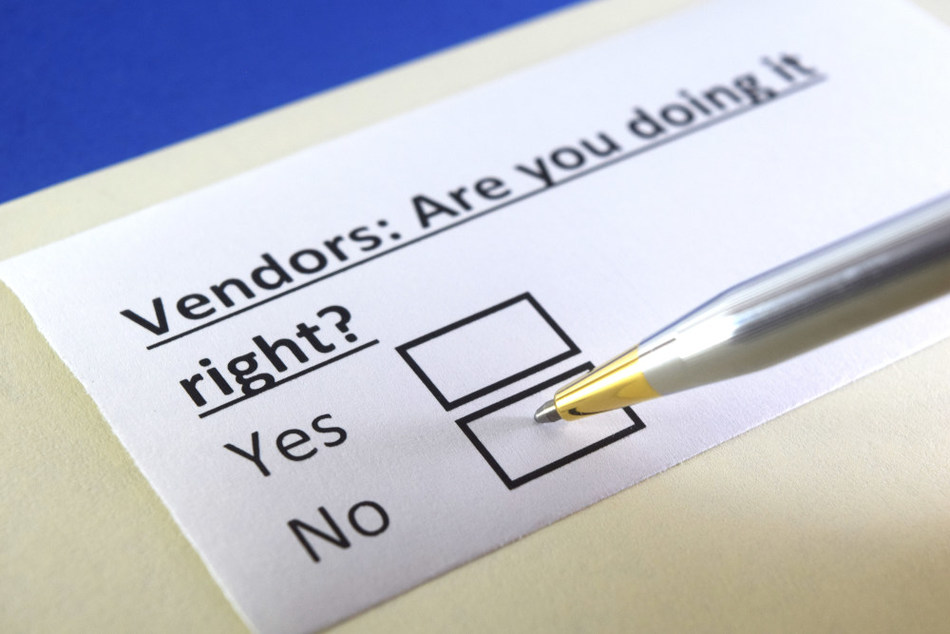An Amazon Vendor’s Playbook for Success

Enroll in Brand Registry
According to Steve Bell of Vendor Velocity “the number one most important thing any vendor can do is enroll in Amazon’s Brand Registry.” On March 9, 2019 Amazon sent an email to their vendors stating that Amazon prefers to source products directly from brand owners. This message encouraged vendors to register their brand(s) in the Amazon Brand Registry and went on to say that by registering their brands in the Brand Registry, Amazon’s automated ordering system would continue to place orders to those registered brands. The Brand Registry is not an option for vendors, it is a necessity.
Registration is simple; the main thing a vendor needs is a trademark for their brand. In the United States, that would be a trademark issued by the US Patent and Trademark Office. The full list and registration details can be found here.
Marketing Technology News: Showpad Brings TRANSFORM 2019, the World’s Largest Sales Enablement Conference to London and Chicago
Create High-Quality Detail Pages
Amazon’s algorithm favors content that follows their guidelines. Make sure your detail page content conforms to what Amazon is looking for. Keep titles brief and accurate. Make sure you’re using all bullet points and description spaces available to you. Check spelling, and use accurate and popular keywords, but don’t engage in what’s known as “keyword stuffing”: a soup of incoherent keywords that do nothing to explain the product or its uses. Instead use the Hidden Keywords area to enter relevant keywords that aren’t mentioned anywhere else on the detail page. According to Amazon, there is no need to mention a keyword more than once.
Images are important, and more is better. Amazon’s mobile platform can display up to 6 product images. Having a minimum of 6 images on a detail page should be every vendor’s goal. If 6 images are not possible, there should never be fewer than 3. Image size is also important. When images with dimensions that exceed 1000 pixels on the shortest side are uploaded, the image zoom feature will become enabled for that image, allowing customers to look at the item in detail.
“Below the fold” a vendor has an opportunity to describe their product with rich, brochure-like content called A+ Content. There was a time not too long ago when Amazon required the vendor to pay a hefty fee for the privilege of presenting their product using A+ Content. Today it’s free, and every vendor should take advantage of it, especially if the item is complex, technical, or carries a higher retail price.
Finally, make sure all items are correctly categorized to the finest level that makes sense. Shoppers often use a combined search and browse approach to find what they are looking for. If you are selling socks that are incorrectly categorized in Kitchen, guess what will happen? (Hint: “Lots of sales” is not the answer!).
Keep the Buy Box
Now that your brand is registered, your detail pages are optimized, and your products are properly categorized, it’s time to defend your hold on the Buy Box.
When Amazon has a direct relationship with a vendor, they expect to be able to compete favorably with other sellers of the same item. If Amazon can’t offer a competitive retail price (not necessarily a lower price) on your items, they will give the Buy Box to a Marketplace (third-party) seller and move the Amazon offer down to the less-visible “Other Sellers” area.
You may have guessed that Amazon doesn’t want to hang out in the “Other Sellers” section on items they have purchased from the vendor. If Amazon loses the Buy Box consistently on an item, they will mark the item as unprofitable and cease placing orders for it. That’s why maintaining Buy Box control is high on the priority list for vendors who wish to stay on top of their Amazon game.
Marketing Technology News: Primerica Taps IBM to Modernize Applications in a Hybrid Cloud Environment
Advertise on Amazon
The last simple play in the book is taking advantage of Amazon’s advertising opportunities. Sponsored Product and Sponsored Brand ads are the only way to ensure a vendor’s key items are appearing in the critical first page of search results. Your competitors are advertising, and you should too.
There are many ways to utilize advertising dollars on Amazon, even for vendors with smaller budgets. Sponsored Product and Sponsored Brand ads can be setup and launched quickly, and they can really move the needle on sales.
Playing to Win
By taking these steps, Amazon vendors will increase sales, decrease buy box losses, and maintain relevance on the Amazon platform.
Marketing Technology News: Renowned Leaders of Evolving Tech Industry Join Act-On Executive Team











